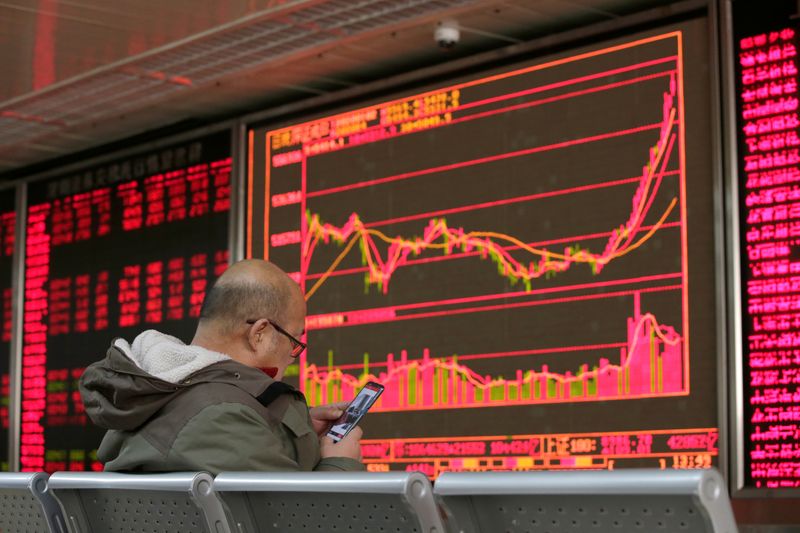By Zhang Mengying
Investing.com – Asia-Pacific stocks were up on Wednesday morning, and a pullback in bond yields eased some investors' concerns about the recession caused by the higher rates.
Japan’s Nikkei 225 gained 1.00% by 10:28 PM ET (2:28 AM GMT). Beating market expectations, government data released earlier in the day showed that Japan’s gross domestic product (GDP) shrank 0.5% in January-March year-on-year, smaller than the preliminary reading of 1.0% drop released last month. GDP decreased 0.1% quarter-on-quarter.
The yen dipped further after sliding to a 20-year low.
South Korea’s KOSPI was up 0.45%.
In Australia, the ASX 200 rose 0.81%. The Reserve Bank of Australia (RBA) hiked interest rates to 0.85% on Tuesday, above forecasts of 0.60 prepared by Investing.com.
Hong Kong’s Hang Seng Index jumped 1.98%
China’s Shanghai Composite was up 0.52% while the Shenzhen Component was up 0.57%.
The S&P 500 gained, wiped out last week’s losses with back-to-back advances and the tech-heavy Nasdaq 100 also climbed.
U.S.-listed Chinese shares climbed for a second day over expectations that a year-long government crackdown on the technology industry is easing.
U.S. Treasury yields edged higher. Target Corp's (NYSE:TGT) latest profit forecast set a grim outlook for U.S. consumer spending, pushing 10-year yields below the 3% level.
Investors are worried that more interest rate hikes could slow the economy, they are now looking to Friday’s U.S. consumer price index (CPI) for more clues on the interest rate hike path.
“Figuring out the direction over the next couple of months becomes increasingly difficult,” BlackRock Inc. head of thematic strategy for global allocation Kate Moore told Bloomberg.
“There seems to be across all of the investing segments a lack of strong conviction in the direction of the market. We are going to see a lot more investors remain on the sidelines, remain cautiously positioned.”
The European Central Bank will hand down its policy decision this Thursday, and it will announce an end to bond purchases this week.
The World Bank reduced its estimate for global growth this year to 2.9% from a January prediction of 4.1% because of soaring commodity prices, supply disruptions, and moves by central banks to hike interest rates.
